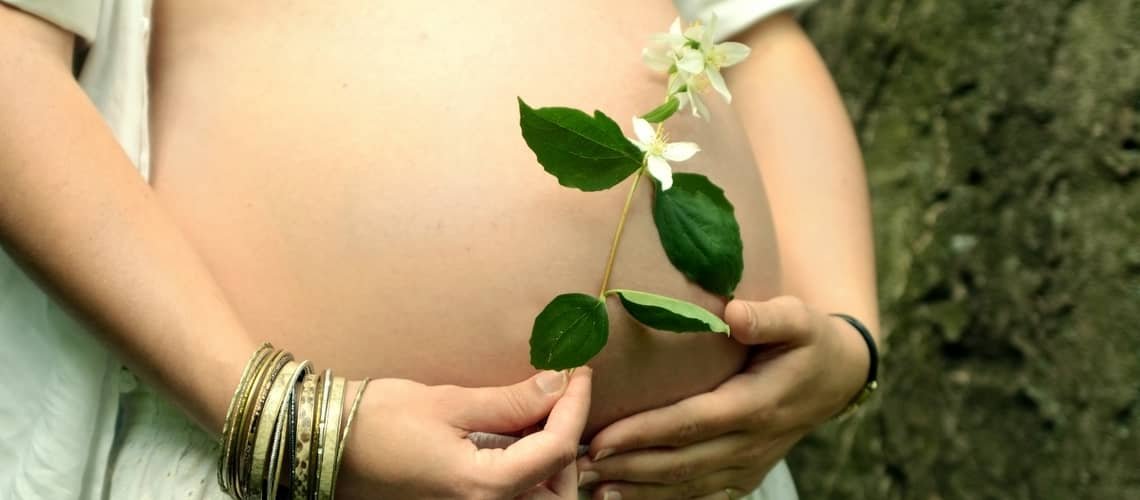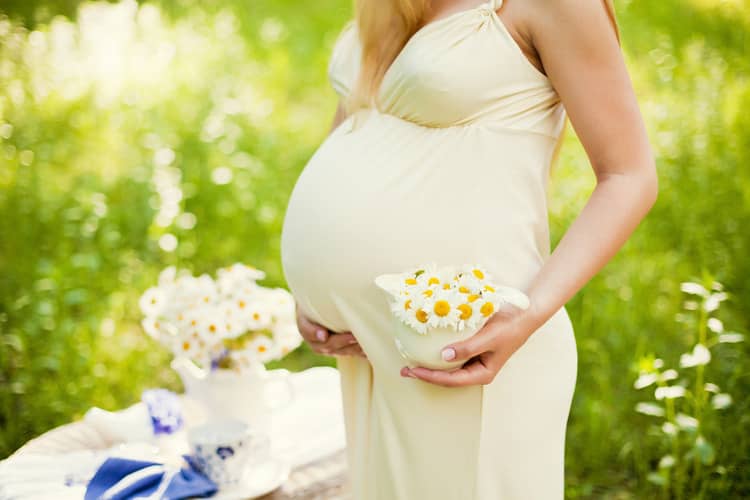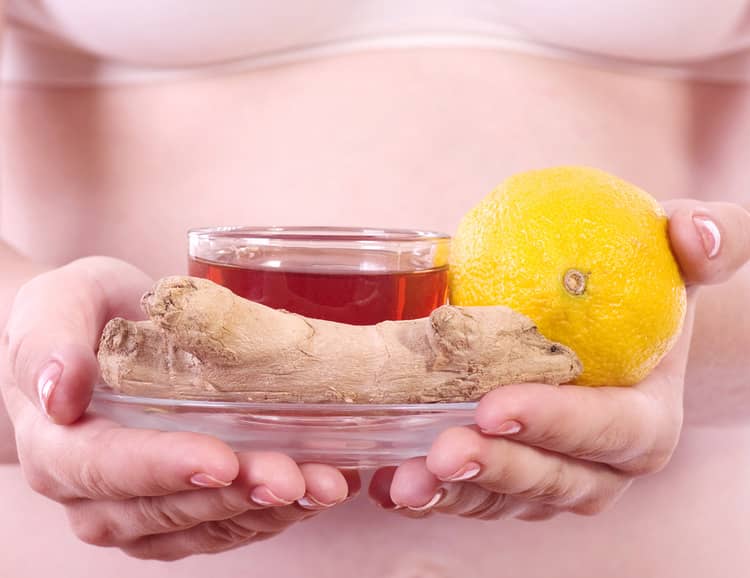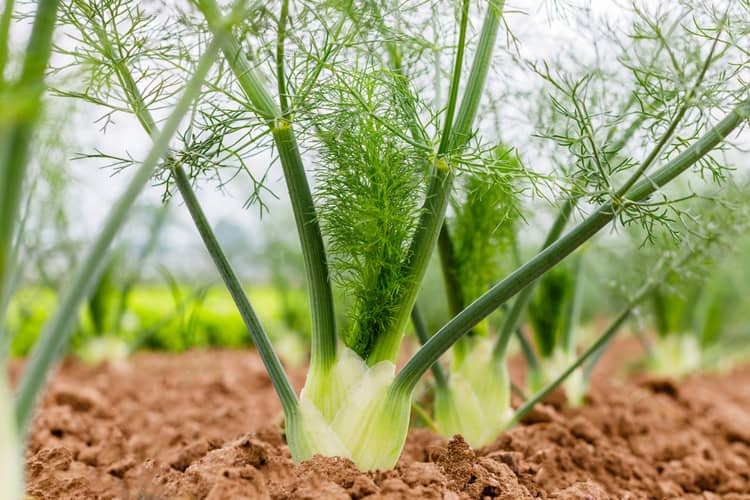
Herbs in pregnancy. Suitable + unsuitable ones: sage, honeydew, hibiscus, basil, thyme, chamomile
Herbs can be used in various forms - as teas, poultices or baths. They help with digestion, colds and coughs, they can cleanse the liver and kidneys. But what about herbs in pregnancy? With some, everything goes in moderation, others should be avoided. Since what the mother ingests automatically enters the child's body through the umbilical cord, it is necessary to know exactly which herbs are suitable and which are prohibited during pregnancy.
Herbs can be great helpers during pregnancy, as medicinal plants contain many active substances, but some of them may have unwanted effects. Therefore, you should not underestimate the choice of herbs during pregnancy. Is sage, honeydew, sea buckthorn or basil suitable during pregnancy?
Everything does a lot of harm
Not everything that is natural is safe for the body and without side effects. Even herbs that are considered safe during pregnancy should be used in moderation. The duration of use and the dose are important. Throughout pregnancy, you should handle medicinal plants with care and consume them only in small quantities. Not only in food, but also as part of a drinking regime. You should not drink herbal teas just for thirst every day and for a long time. It is better to consult your doctor about the use of herbs, he will definitely tell you whether the medicinal plants you have chosen are suitable, or whether they are prohibited foods for pregnant women.
Suitable herbs in pregnancy
If you can't imagine life without herbal teas, you don't have to give them up completely even during pregnancy. There are herbs that will do you and your baby good service in reasonable amounts. Of the 126 herbs used, only 28 are considered relatively safe during pregnancy. A 2013 multinational study published in Frontiers addressed the use of herbs during pregnancy. Some are reasonably suitable during the entire period of pregnancy, some only in certain periods, in the 1st, 2nd or 3rd trimester.

Honeysuckle in pregnancy
Honeysuckle can be helpful for indigestion, headaches, tension, but also for insomnia. It has a relaxing effect, so it is often used for nervous problems and exhaustion. It contributes to the maintenance of hormonal balance, helps with spasms.
Sea buckthorn in pregnancy
Sea buckthorn contains more vitamin C than lemon - 1 berry contains 25 times more vitamin C than lemon. It is advisable to take 60 to 100 mg of vitamin C daily, sea buckthorn contains approximately 1,500 mg of vitamin C in 100 g of fruit. The daily dose of this vitamin is covered by 10 berries, so you can safely consume 4-5 berries without endangering yourself or the fetus. Sea buckthorn has a beneficial effect on the quality of the skin, acts against stress and reduces joint pain.
Chamomile during pregnancy
Chamomile is helpful for general nausea. It can be used for short-term coughs and colds, the decoction is suitable for skin problems. It has anti-inflammatory effects, has a positive effect on digestion and is also known for its calming effects.
Ginger during pregnancy
Medicinal ginger is used for nausea during pregnancy, which is typical especially for the 1st trimester of pregnancy. It should be consumed in moderation, because in larger quantities it can cause blood flow to the pelvic floor, so it is no longer recommended in the later stages of pregnancy. A small piece of the root is suitable to suck, it calms the stomach and helps with colds. Avoid ginger tea during pregnancy, try ginger lollipops, candies or cookies instead.

Raspberry to facilitate childbirth
Raspberry blackberry leaves are only suitable from 34-36. week of pregnancy as preparation for childbirth. Raspberry strengthens the uterus and facilitates childbirth, it is rich in iron. During the last 2 months of pregnancy, it is recommended to drink 1 cup a day. Towards the end of pregnancy, it is also recommended to drink alchemy tea, which can induce labor.
Nettles throughout pregnancy
It contains a whole range of vitamins and beneficial substances, has cleansing effects, helps with heartburn, swelling and urinary tract diseases, supports the production of breast milk. Nettle will help you reduce hair loss during pregnancy.
Dandelion for swollen feet
The plant, rich in iron, calcium and vitamin A, helps reduce swelling of the legs, is used for poor digestion with constipation, supports the production of bile and excretion. Both the leaves and the root are suitable for consumption.
Fennel
Fennel is also suitable in small doses during pregnancy. Its tea supports the production of breast milk, has a calming effect on the intestines, therefore helps with abdominal pain and bloating.

Linden and rose hip tea for a cold
If you suffer from the flu or a cold during pregnancy, brew linden or rosehip tea. The linden flower has an anti-inflammatory effect, reduces the temperature in case of colds, improves digestion, the fruits of the rose hip contain vitamins C, B2, B6, K and provitamin A, have diuretic and diaphoretic effects.
Mint for morning sickness
This herb has not been shown to have a negative effect on the mother or fetus, yet it is generally considered an unsuitable herb during pregnancy. Considering its ability to maintain the normal activity of the digestive system, relieve nausea, morning vomiting, and stomach problems, there should be no problem with its use during pregnancy. Mint should be drunk in moderation and not exceed the recommended doses. It is unsuitable during the 1st trimester (congestion of the uterus and stimulation of menstruation) and during breastfeeding, as it adversely affects milk production.
Unsuitable herbs in pregnancy
The amount of herbs causes blood flow to the pelvic organs, increases the tone of the uterine muscles. Among the uterotonics are e.g. cinnamon, lavender or sage. Herbs containing alkaloids are also unsuitable. Many of the forbidden herbs during pregnancy can be used in small quantities, they are harmful only in larger quantities.
Sage in pregnancy
In large doses, it can cause uterine contractions, abortion, and is associated with high blood pressure. You can use it as a spice in low doses, but concentrated doses (e.g. tea) could endanger you and the fetus.
Cinnamon
Occasional use will not harm you, but with a larger amount, unwanted blood flow to the pelvic organs occurs. In high-risk pregnancies, avoid it completely, it has an effect on the uterus - it can cause contractions.

Basil in pregnancy
This herb is safe to use occasionally as a food spice, the use of the essential oil during pregnancy should be avoided. Not much is known about the effects of this herb in pregnancy (no research has been conducted), however, its excessive consumption during pregnancy is not recommended.
Thyme in pregnancy
Another common kitchen herb is thyme, in small quantities (to flavor food) it is allowed until about the 26th week. Herbs in the later stages of pregnancy can cause cramps, congestion of the pelvic organs or high blood pressure.
Parsley
It is only safe as a spice, in larger quantities it can affect the development of the fetus, there is a risk of miscarriage. Definitely avoid drinking parsley tea.
Medicinal lavender
Despite the fact that it has a calming effect, works against insomnia and migraines, improves digestion and slightly reduces pressure, it is considered an unsuitable plant in larger doses. It is not recommended to drink tea from it or use lavender oil. Aromatherapy should also be avoided, because lavender is strong and could induce a miscarriage. Its use and changes during breastfeeding, when it is in demand, because it will help with tension, anxiety, stomach problems, the oil relieves cracked nipples.

Aloe Vera
Among the herbs that should not be taken during pregnancy is aloe vera. The reason is the anthraquinone glycosides it contains. They have a strong laxative effect, can cause contractions and abortion.
Hibiscus in pregnancy
Hibiscus tea can cause fluctuations in hormones, which is especially undesirable in the 1st trimester. In large quantities, it stimulates blood flow in the pelvic area and uterus, which could cause bleeding, cramps or even premature birth. It is best to avoid consuming hibiscus in any form during pregnancy.
Shepherd's purse, common yarrow (mouse's tail), horsetail, marjoram, rosemary, wormwood, black elder, St. John's wort, rue, cloves, nutmeg, motherwort, juniper or hawthorn are also considered risky and dangerous herbs during pregnancy. Garlic in larger quantities is harmful because it can thin the blood and increase bleeding.
Herbs in pregnancy - experience
Thyme only in small quantities, garlic only if it does not harm you, rooibos and nettle are just some of the herbs that mothers recommend during pregnancy. In discussions, they often decide which herbs not to drink during pregnancy. According to their experience, you should avoid sage tea, alchemy or cinnamon, they recommend alternating teas and maintaining moderation.
The most frequent questions - FAQ
During pregnancy, it is important to alternate the different types of herbs and use them only in appropriate amounts. Expectant mothers should eliminate herbs with strong laxative effects from their diet and drinking regimen, affecting the activity of the uterine muscles and causing blood flow to the pelvic organs. In the article, we presented you with suitable and unsuitable medicinal plants during pregnancy. But if you didn't find what you were looking for, write us your questions in the comments. You can also share your experiences and recommendations.
Are herbs suitable for seasoning food during pregnancy?
Is garlic suitable during pregnancy?
Are herbal teas suitable for flu and colds?
Which herbs can I use before giving birth?
Pridať komentár







